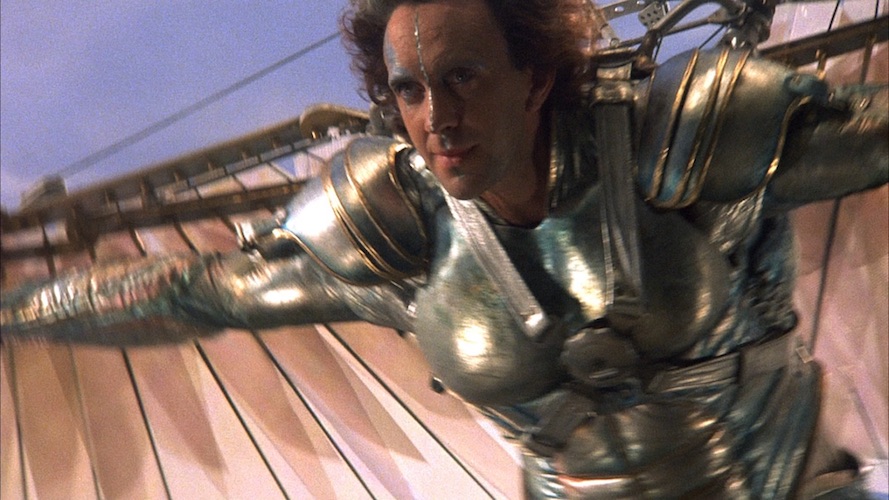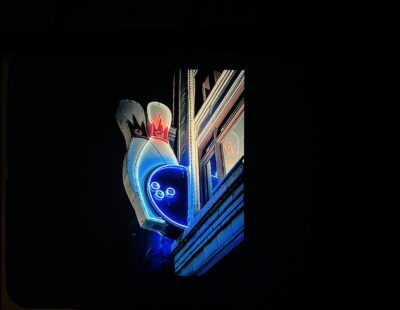
Rewatching a film you haven’t seen in a long time can be an enlightening experience. As Joe Dante is fond of saying, “Movies don’t change. You do.” As does, of course, the world. Terry Gilliam, probably best known as the resident animator and only American in the British comedy troupe, Monty Python, released his magnum opus, Brazil, back in 1985. Brazil is essentially a comedy wrapped up in a Kafkaesque nightmare. Jonathan Price stars as Sam, a nebbish paper-shuffler living within a dystopian alternate reality. When Sam’s not working at the Ministry Of Information, he lives in a fantasy world, soaring through the air on gossamer wings like a glam rock version of Icarus. After he spots a real-life version of the blonde beauty he routinely rescues in his imagination, he ends up being pursued by government storm troopers as he stalks the girl of his dreams.
From our post-9/11 viewpoint, Brazil’s biting social commentary comes across like an unheeded polemic against the slippery slope of surveillance and information gathering done in the name of national security. Propaganda posters clutter Sam’s workplace with paranoia-inducing bromides such as, “Be Safe – Be Suspicious.” Terrorist attacks have become so commonplace, when a bomb goes off barely anyone bats an eyelash. Even restaurants are equipped with airport-style security checks. Brazil’s dark and surprisingly prescient sense of humor is best exemplified during a newscast when a reporter pushes back against the Deputy Minister’s assertion that the State’s never-ending war against terrorism is going just fine; when he’s is reminded that the terrorist’s bombing campaign is in its 13th year, the minister replies, with a chuckle, “Beginner’s luck.”
With Brazil, Gilliam created a hyper-stylized world of ‘30s fashion and steampunk technology with nothing but old school miniatures and camera tricks. Ironically, it appears to presage the digital problems of today. Using an obvious metaphor for modern day computer bugs, a swatted insect sets off a tragic domino effect after it drops into a printer, causing the last name on a government arrest warrant to change from “Tuttle” to “Buttle.” Ubiquitous air conditioning ducts and pneumatic tubes can be read as analog versions of the digital spider webs that ensnare us all. And Sam’s flights of fancy, where he heroically slays a gargantuan opponent, is strikingly similar to the photo-realistic videogames that provide ego-boosting escapism for today’s incels, of whom Sam has much in common.
Along with its themes and set design, the casting of Brazil has aged for the better. As actors mature the baggage they accrue can sometimes get in the way of their performances. With Brazil, it’s the exact opposite; with the exception of Robert De Niro, who plays a renegade plumber, most of the actors were relatively unknown, so watching a pre-Lord of the Rings Ian Holm share scenes with a pre-Game of Thrones Jonathan Price is a sublime pleasure that audiences in ’85 simply couldn’t enjoy.
Not every film benefits from a rear-view mirror perspective. Brazil – one of the darkest, funniest, and prophetic satires ever made – is indubitably one that does, and with a resonance that reverberates louder than ever.
For KSQD’s Film Gang, this is Paul Kanieski.










